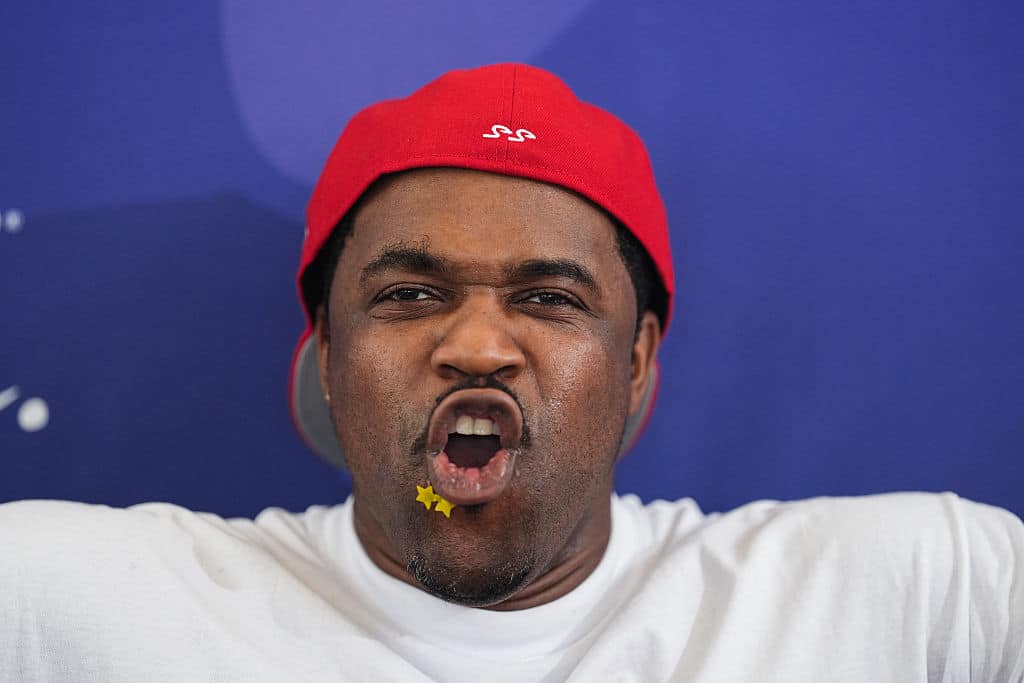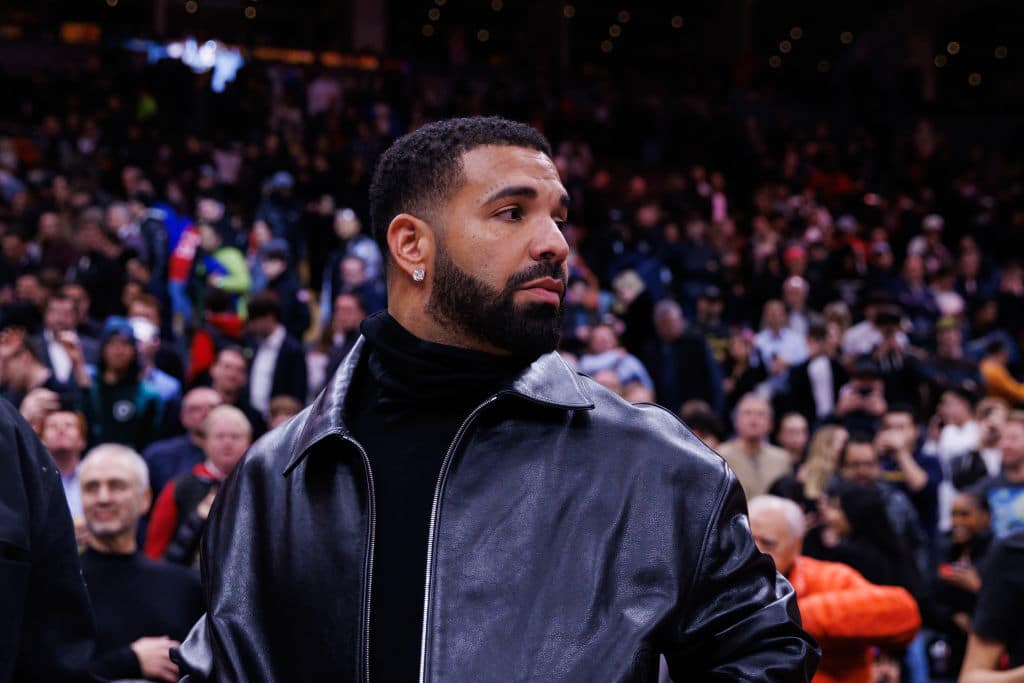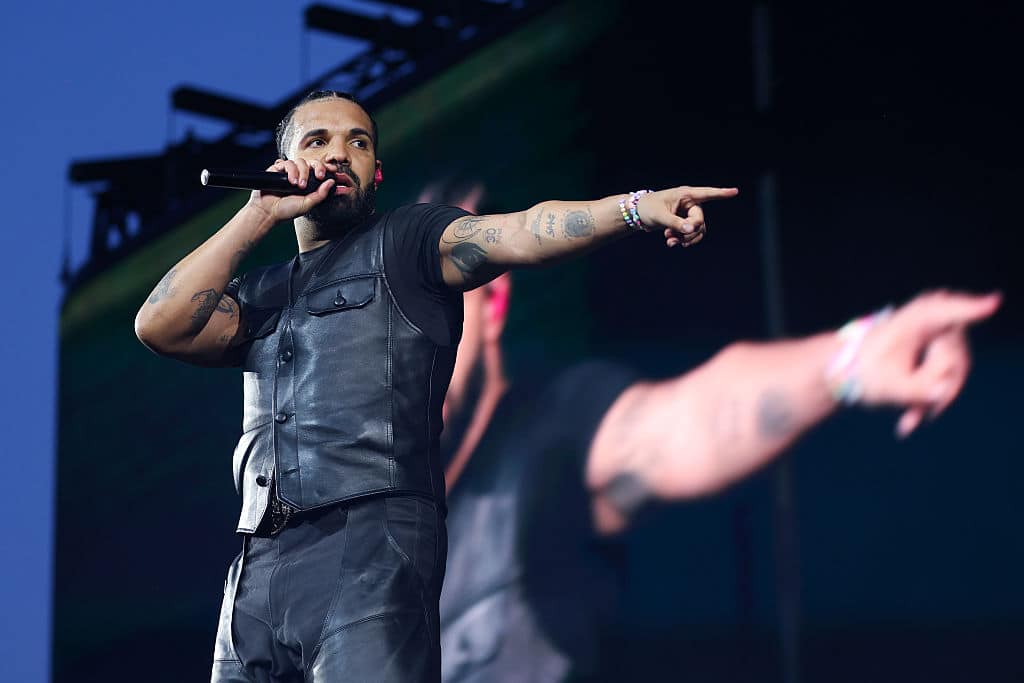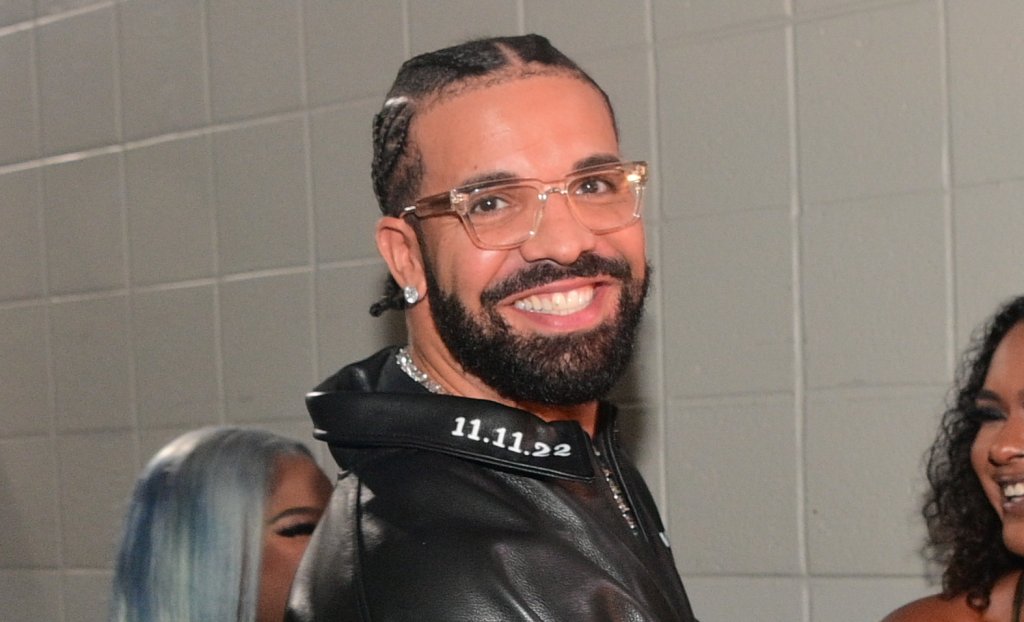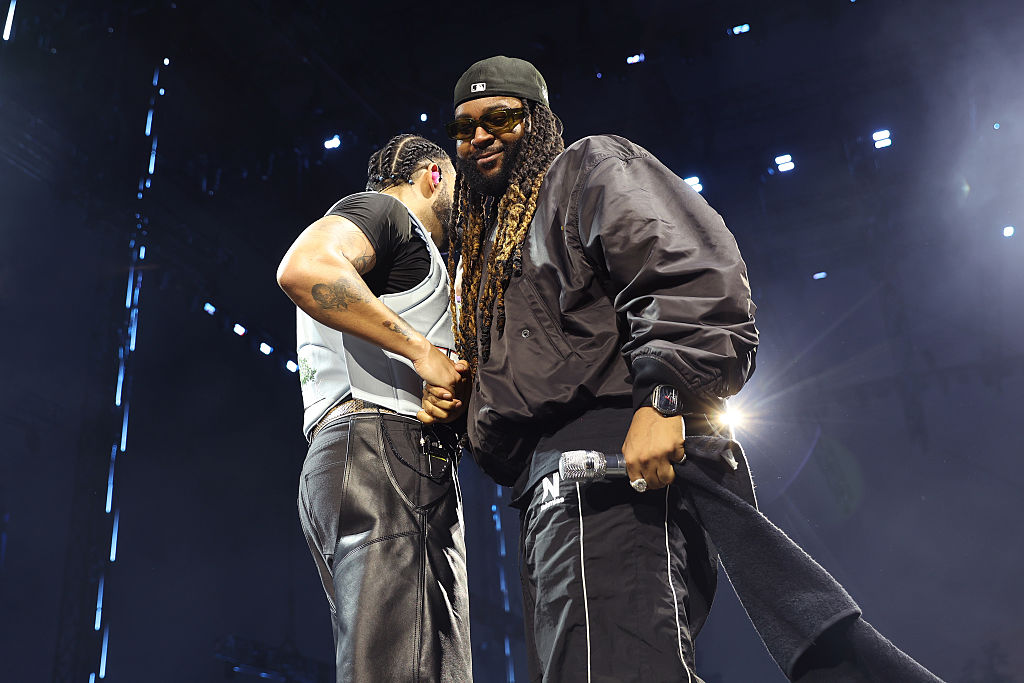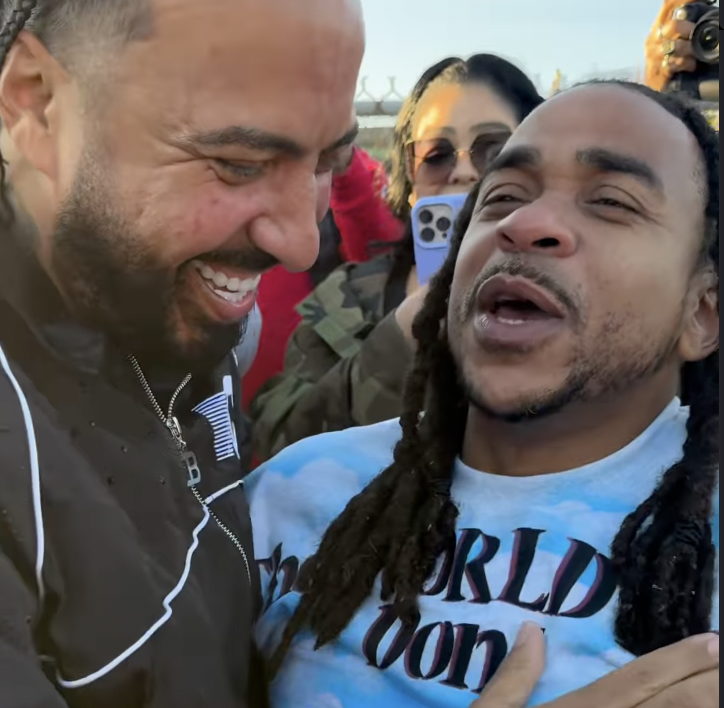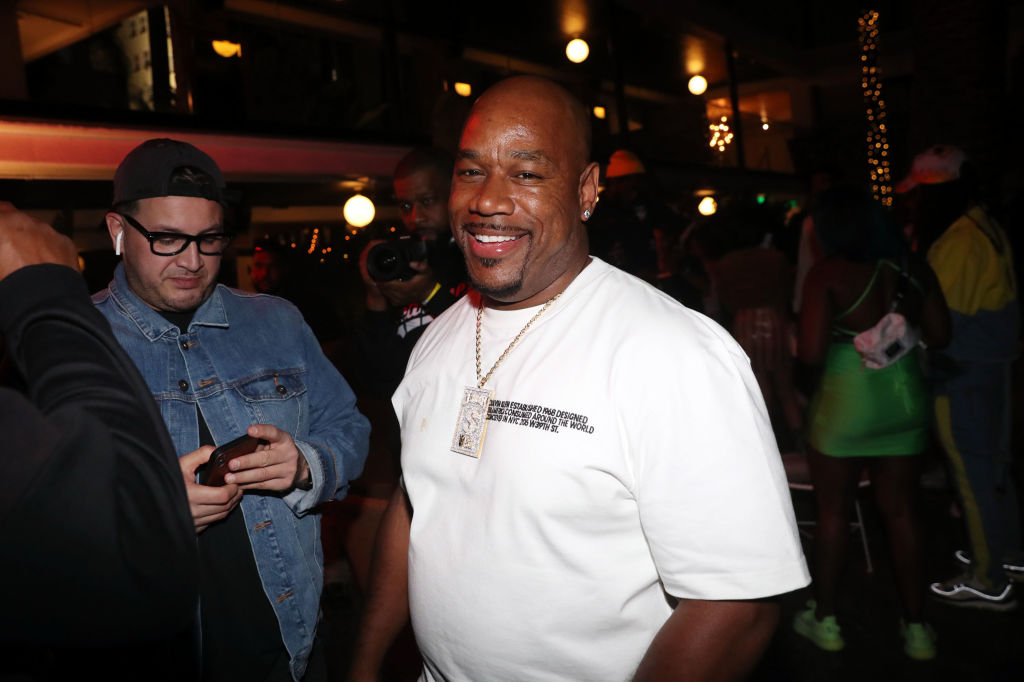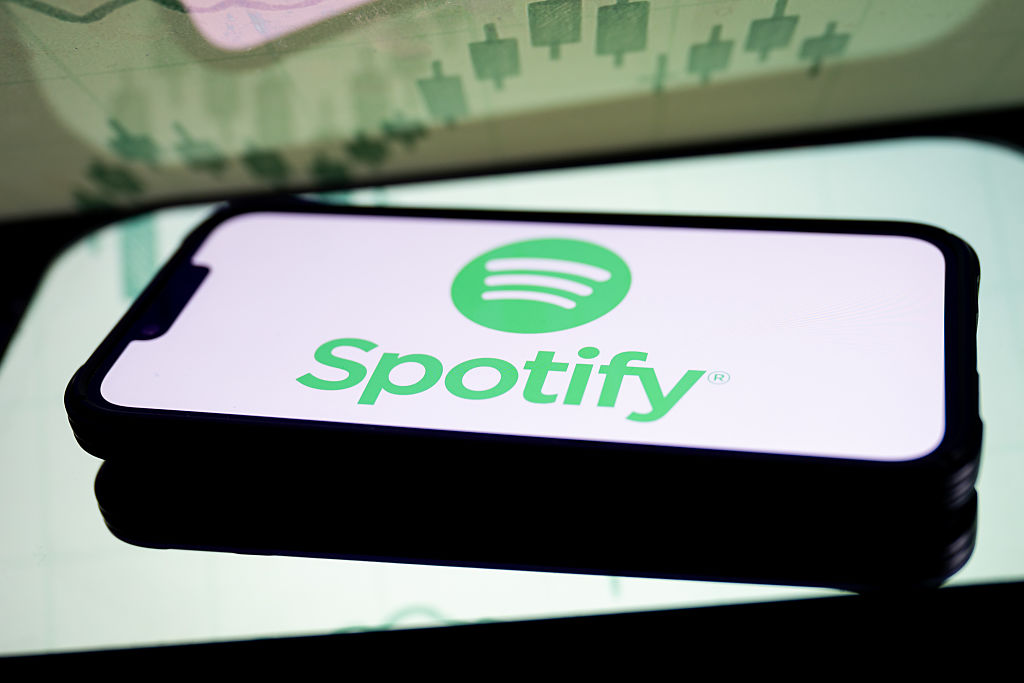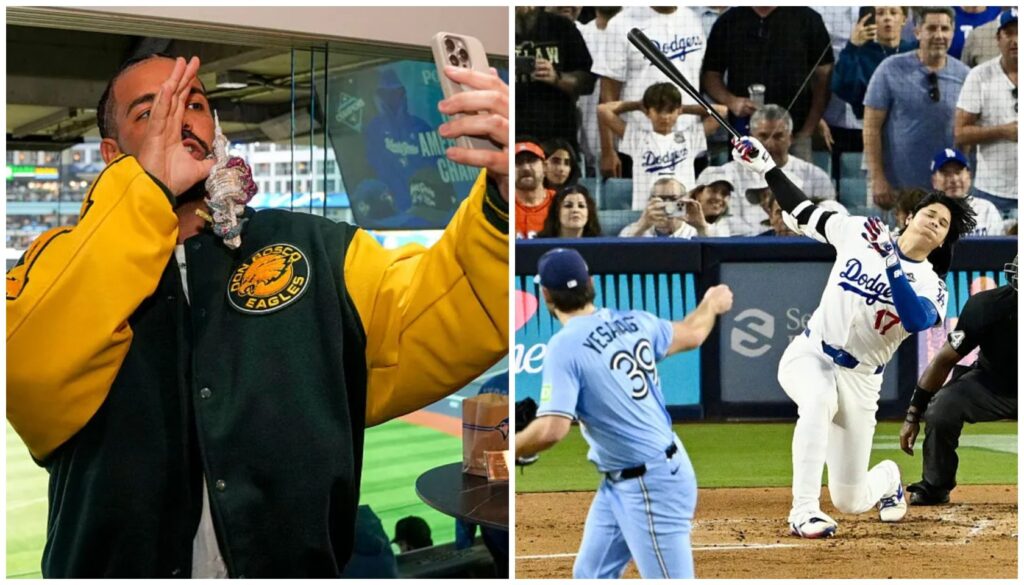drake
Source: John Nacion / Getty
A$AP Ferg shows the Hip-Hop game a level of empathy that deserves to be studied.
In a recent interview, he kept it real about the A$AP Mob and Kendrick Lamar’s relationships with Drake. Let’s take it back to 2012; the Canadian rapper was coming off the success of his fan-favorite album, Take Care. Kendrick Lamar was picking up steam with Section.80. You heard right, Kenny hadn’t even blessed the world with good kid, m.A.A.d city. Meanwhile, A$AP Rocky had just dropped his debut project, LIVE.LOVE.A$AP.
Drizzy already had a head start in the game, signing to Lil Wayne as the Young Money prince. So when tour time came, he chose to bring both Rocky and Lamar with him.
Years later, on “4pm in Calabasas,” he revealed that decision-makers around him didn’t want him to bring them as supporting acts. Drake still went with his gut: “When they told me take an R&B n*gga on the road and I told ‘em no and drew for Kendrick and Rocky. I tried to make the right choices with the world watching.”
Love Hip-Hop Wired? Get more! Join the Hip-Hop Wired Newsletter
We care about your data. See our privacy policy.
Fast forward to today, and both the West Coast and Harlem MCs find themselves on bad terms with The Boy. After diss tracks, lawsuits, and even a Super Bowl performance, A$AP Ferg, one of the Mob’s core members, shared his perspective on all the tension.
He compared the situation to family dynamics:
“I feel like that’s kind of natural, though, because even when you think about the family dynamic, little brother, big brother things. A lot of the times, a little brother want to grow up and prove himself and not be under the wings of the big brother.”
The Plain Jane rapper also added that all three (Rocky, Kendrick, and Drake) were still becoming who they really are when they first met:
“A lot of the times, where we start is not who we really are. We’re still growing into the person we are. The K.Dot that was on the tour, or the Drake that was on tour, or the Rocky that was on tour, or the Ferg that was on tour, is not that same person. We were still learning ourselves during that time, so when you grow, you can’t expect for the relationship to be the same.”Despite the back-and-forth that’s played through the music in recent times, the Trap Lord offered a different, more human perspective on the beef.
Drake is prepping his ninth studio album, Iceman, and its release is highly anticipated considering the aftermath of his feud with Kendrick Lamar and the UMG record label. In a new interview, Drake explained his embrace of livestreams to roll out Iceman to the masses, using unconventional methods to drum up interest in the project.
Drake spoke exclusively with Complex to share details about his strategy for the upcoming Iceman drop and why he decided to take the marketing path he employed for the release. Taking to his YouTube page, the OVO honcho’s livestreams revealed some of the potential directions for the album, and he shared with the outlet when he was ready for a shift in promotion tactics.
“I was asked by a creative partner what I love and hate about rolling out an album,” Drake shared in an email statement. “I expressed that I love the opportunity for a clean slate of thoughts and excitement, and messaging when it comes to the music. What I hate is the redundancy of this formulaic approach that’s [ingrained] in our brains from early label days. Single, video, single, video, album cover post, etc.”
Love Hip-Hop Wired? Get more! Join the Hip-Hop Wired Newsletter
We care about your data. See our privacy policy.
The streams have been well-attended as far as numbers go, although some fans have expressed confusion over the practice considering Drake’s superstar status. But for someone who has been on top for years, the artist born Aubrey Graham is looking for a spark.
“I have been dying to act and have been dying for a challenge,” Drake added. “The game is extremely calm seas right now. Nobody is rocking any boat on the water and so once we discussed a live stream rollout, it just sounded like the perfect mix of risk and reward for me.”
Livestreaming is big business, as evidenced by the meteoric rise of stars like Kai Cenat, IShowSpeed, and PlaqueBoyMax, and Adin Ross, along with grizzled veterans of the space such as DJ Akademiks. Because many millions of views are for the taking in livestreaming, it makes sense Drake made his way to the arena to reach old and new fans.
“I think I am always capable of recognizing when things are shifting and not being weirdly affected by it, not being jealous, not being thirsty, just finding how I can shine light or co-exist or make it a part of our ecosystem,” Drake clarified regarding his entry point into streaming.
Iceman‘s release date has yet to be announced. Check out the full Complex piece here.
—
Photo: Getty
Source: Simone Joyner / Getty
Drake may have thrown some shade at one of his old flames.
The Boy was posted up with Sexyy Red on the tennis court, working on his game. They snapped a flick together, and he captioned it, “I said tennis lesson she said where’s the bracelet or the necklace.” Trolls online quickly chimed in, but one comment stood out: “Serena Williams upgrade.”
In true Drizzy fashion, he liked the comments. SMH…
Some believe that like was deeper than it seems, considering Serena, the legendary tennis player, and the OVO rapper had a thing year ago. During Kendrick Lamar’s Super Bowl halftime performance, Serena made an appearance. Not only did she come out, she danced to “Not Like Us,” which the internet immediately took as a shot at her old boo. Shortly after the performance, she cleared the rumors and denied any ill intent: “I would never do that, and it was sad that anyone would ever think that. But absolutely not. I have never had negative feelings towards him.”
Following Kendrick’s win in the beef, a wave of “leaked” Drake videos hit the internet. One clip stood out: Drake was working on the song “Too Good.” In the video, Drizzy is talking with his mom, where he admits the song was inspired by Serena. His mom jokingly mentions that Serena has a new man, and Drake replies, “I don’t know, Mom.”
Source: Prince Williams/Wireimage / Prince Williams/Wireimage
Drake has the type of money where he can turn down multi-million-dollar offers without even flinching.
Rolling Loud goers have been wanting to see The Boy headline for years now. Tariq Cherif, co-founder of Rolling Loud, told Adin Ross that they’ve tried to book Drizzy multiple times: “We send him a max offer…millions of dollars.” In another interview, Cherif even claimed the OVO rapper is dodging them, “We offered Drake three nights of Drake…he’d be the headliner for three nights. I’ll say it, I don’t care. I feel like Drake is ducking us.”
This made fans wonder why Drake would turn down such a huge bag. Cherif also insisted there’s no bad blood, saying, “I got no beef with Drake…I feel like he’s a great artist. We’ve been trying to book him forever.” Kendrick’s op has not made an official statement about why he keeps passing on Rolling Loud.
Many fans online believe Drake has been locked in on his upcoming album, “ICEMAN,” which was rumored to drop in early November, but that window has come and gone. Drizzy released the single, “What Did I Miss?” in early July. Complete with a music video and some questionable lyrics, fans think it may be aimed at a former friend (allegedly). After his beef with Kendrick, some people even speculate that certain lines were about LeBron James.
Since dropping the single for “ICEMAN,” the Boy has stayed silent.

Trending on Billboard
Since her days as a kid on Long Island, pop-rock singer-songwriter Julia Wolf has been fascinated by horror films. “My mom was putting on slasher films from when I was in the womb,” she says.
Over time, such grisly themes began to spill over into her music. In early 2024, she thought of the lyric “I’d slit my own throat just to see if you’d mourn me” while crafting a track about a recent ex — but then texted her sister and best friend to make sure that the line wasn’t overly morbid. Soon after receiving the go-ahead, she found another lyric, “I stalk myself on the internet just to see what you’ll find,” tucked away in her phone’s Notes app. Before long, Wolf had enough material to begin recording.
“It was just the choice of how vulnerable I wanted to get,” she recalls. “It’s something that took me until my thirties to understand that that’s what I want to do — be as honest as possible.”
The resulting track, “In My Room,” has pushed the 30-year-old from the indie shadows into a hitmaker. Propelled by its niche usage by a particular cult fandom on TikTok, its following has since carried over to the Billboard charts: the grungy song has reached a No. 27 high in 17 weeks on Hot Rock & Alternative Songs and a No. 21 high on Hot Alternative Songs. And its success has opened doors that Wolf can hardly fathom, including an Instagram direct message from — and eventual collaboration with — Drake earlier this year, who opened their conversation by quoting lyrics from the breakthrough.
Raised on a steady diet of Avril Lavigne and emo music, Wolf began experimenting with music in high school at open mic nights and restaurant gigs around Queens. Debut EP Girls in Purgatory arrived in 2021 and full-length Good Thing We Stayed followed in 2023, with the latter’s pop-leaning singles “Get Off My” and “Gothic Babe Tendencies” with blackbear garnering buzz within the indie scene. As Wolf readied “In My Room” in 2024, she teased it relentlessly on TikTok. Though heavier and darker than anything she’d made before, the song quickly gained traction on the platform, thanks to Wolf tying snippets of the track to rotating images of different Twilight characters and scenes.
“Julia is the most Twilight-obsessed person I’ve ever met in my entire life,” NU.WORLD Management founder Tanner Barry, Wolf’s manager since 2023, says. “When it started working, it was so easy for us to keep playing into it.”
LE3AY
Lifted by several posts of Kristen Stewart and Robert Pattinson as Bella Swan and Edward Cullen, Wolf released the song in full in March 2024. But as the trend began to wane, funding dried-up, according to Barry. At the time, they were working with independent distributor Stem, which was hesitant to back a bigger push for “In My Room” because of it being based around a timely fad, Wolf says.
“Since the song was already out for so long, they didn’t want to add any more funds to it. It was just me and Tanner thinking of what we can do to [grow] this organically.”
She remained convinced that the Twilight universe would remain the most receptive vessels for “In My Room,” and every time she continued to post the song with a clip surrounding the franchise’s characters, it’d rack up hundreds of thousands of views. Wolf and her team brought those stats to fellow independent distributor AWAL, and while they were in discussion, the track experienced its biggest viral wave yet, with a TikTok video celebrating Stewart’s beauty in a collage of photos. Today, the video has more than six million views. “We were all panicking like, ‘What do we do?’ ” Wolf remembers.
She quickly followed it up with a clip in the same format of Twilight co-star Ashley Greene (who portrays Alice Cullen), which has since surpassed 12 million views. Wolf and AWAL reached a deal this January, and the company helped boost Wolf’s visibility, in part by funding microinfluencer campaigns. The timing of the hit’s resurgence proved fortuitous: She had nearly wrapped the recording for 2025 full-length Pressure — which ultimately arrived in May — and the scorching hot single provided a push in the lead-up. Initial plans to release single “Jennifer’s Body,” a nod to a different cult fandom, were temporarily shelved, and she instead opted for an acoustic version of “In My Room” in February.
“She’s such a good singer,” Barry says. “I thought [the acoustic video] would be a good way to show people that she actually sounds like that.”
LE3AY
The following month, Drake surfaced in Wolf’s DMs. According to Wolf, he discovered the song after a woman requested that he play it at a club. “Shout out to that girl for having my back,” she says today with a laugh. The two then exchanged numbers and began to talk about making music together. Wolf recorded a few demos to send to the superstar, and one titled “Dog House” became the winner. Wolf’s raw vocal serves as the intro to the track, which erupts into a high octane rage-rap single that also features Yeat. The song arrived in September, and in turn became Wolf’s first entry on the Billboard Hot 100, peaking at No. 53.
“She was at probably two million monthly listeners and jumped up just shy of 10 million,” Barry reflects of the A-list co-sign. “We were seeing the highest streams of [Pressure] on a daily basis. What Drake did so well, that we’re so appreciative of, is he allowed [the song] to be a showcase of Julia.”
Drake also supported Wolf in the months before its release, watching her perform at Toronto’s Velvet Underground in June and sharing some advice over dinner afterward.
“He was expressing how everyone has access to the internet and is able to say anything they want,” Wolf says. “The loudest people aren’t the right people, but it just feels that way. I get so in my head about internet comments and people being mean. He can definitely relate to that.”
LE3AY
But even with a coveted Drake collaboration opening up an entirely new fan base, Wolf remains devoted to the crowd that got her to this moment: In August, she performed an intimate showcase for 60 fans in Forks, Washington, at the location used for Bella Swan’s home in the Twilight movies. And her star only continues to grow: She released 2MUCHPRESSURE, a remix EP helmed by producer duo 2DUMB on Halloween and will begin touring arenas in support of mgk later this month.
“What helps me stay grounded is that ‘In My Room’ existed for so long when nobody cared,” Wolf says. “I truly believe that any song that I believe in can work. It just needs all these factors to get it to click.”
A version of this story appears in the Nov. 15, 2025, issue of Billboard.
Source: Simone Joyner / Getty
Drake and PartyNextDoor have just achieved another milestone.
This one came from their collaborative album, “$ome $exy $ongs 4 U”, which recently went certified platinum. After years of teasing a joint project, the OVO member finally linked up in February 2025 to deliver on their promise. The 21-track project was filled with mostly love songs but still had a few Hip-Hop moments sprinkled in.
Some of the most popular songs were “Spider-Man Superman,” “Somebody Loves Me,” and “Raining In Houston.” The most successful track off the project is undoubtedly “NOKIA,” which is currently 2x certified platinum. PND also had his solo record on the album, “Deeper,” giving fans those Day 1 PX vibes. The album sold 246,000 units in its first week, Party’s biggest debut to date, and The Boy’s 14th.
Since the release of this project, both artists have not taken their foot off the gas. Drizzy has been teasing the release of his next solo project, “ICEMAN,” and has already dropped the single, “What Did I Miss?”
He appeared to take a few jabs at so-called friends who turned their backs on him during the beef with Kendrick Lamar. One ex-friend of the Canadian rapper is LeBron James, who fans allege caught a few strays on the track. This comes after Kendrick’s Pop Out concert, which, in theory, turned into an anti-Drake event, and guess who was front and center? The NBA GOAT.
Party has still been riding off his late 2024 release of the fourth series of his self-titled album.
Over the weekend, Max B finally walked free after roughly 16 years behind bars. He even made it out to the New York Jets game yesterday, waving his signature “Wavy” flag , and lo and behold…they won! The image of Max B stepping onto the stadium, flashing smiles, soaking in the street-style energy, and then watching the Jets come away with the W is almost cinematic. It felt like the beginning of his comeback. For someone whose career was paused, it’s a vivid way to mark a turning point.
Max B’s story is complicated but very compelling. Born Charly Wingate, he rose to fame from Harlem with his early mixtapes and his unmistakable melodic street voice, helping to define a new East Coast sound. He stacked up mixtapes, collaborated with French Montana (their mixtape Coke Wave is a cult classic), and coined a vice around the “wave” aesthetic. Then the legal issues came into play. He was convicted (in connection with a 2006 robbery that ended in a death) and initially got a 75-year sentence in 2009 before a plea deal and other legal shifts markedly reduced that time. Despite the setback, his music and persona never lost their pull. Instead, anticipation for his release just continued to grow.
In terms of his impact, Max B’s influence on both Hip-Hop and pop culture is real and very under-appreciated. His sing-rap hybrids, ad-libs, and “wavy” slang seeped into later waves of artists who blur the lines between melody and rap, especially in the mixtape era and beyond. Fans still point to tracks like “Picture Me Rollin’” or “Why You Do That?” as part of that early blueprint. Now that he’s out, it matters because he not only gets a second chance at life, but also at reclaiming that voice in the culture. If he drops new music, it can help reset or at least offer a refresher to a sound that helped many artists and scenes. He’s back to make his mark again.
Love Hip-Hop Wired? Get more! Join the Hip-Hop Wired Newsletter
We care about your data. See our privacy policy.
So when can we get new music? The expectations are high. Max B has been quoted as saying he’s ready to dive back in headfirst and not take “turtle steps” once he’s released. The mix of nostalgia (for the old wave) and anticipation (for how he’ll adapt to now) means that when he releases something, it won’t just be another drop. It’ll be a statement! Keep an eye out for a project, features, or maybe even a full comeback album. The “Wavy God” has the momentum and the story to back it.
Source: French Montana / Max B
Now that he’s home, here’s a list of artists Max B needs to collab with, because the possibilities are exciting.
FRENCH MONTANA — The two are long-time friends and collaborators (known for the Coke Wave mixtape series) and have already reunited since Max B’s release, making future collaborations a certainty.
DRAKE — Max B has expressed gratitude for the recognition Drake has given him in songs (“Money In The Grave”) and is open to working with “Champagne Papi.”
WIZ KHALIFA — Max B has a close relationship with Wiz Khalifa, who Max B says “showed straight love” during his incarceration, making a collaboration highly anticipated.
YOUNG THUG — Max B personally called out Young Thug, saying, “We gon’ make some history?” in a phone call to The Joe Budden Podcast, noting their similar melodic rap styles.
A$AP ROCKY — The Harlem ties speak for themselves.
TRAVIS SCOTT — Cactus Jack is a huge Max B fan. The wave mixed with the production of Travis Scott would feed families.
A BOOGIE WIT DA HOODIE — Max B specifically mentioned A Boogie as one of the younger artists he’d like to work with.
CASH COBAIN — Max B also name-dropped Cash Cobain, saying he’s received “sexy joints” from him and is looking forward to jumping on them.
JIM JONES — While they had a past beef, Max B has stated he wants to start over and that “business is business,” so a potential reunion for a track is a possibility.
RELATED: The Wave God Is Free: Max B Finally Released From Prison
Source: Johnny Nunez / Getty
Wack 100 recently had to stand on business after Adin Ross made some questionable comments.
The streamer made it very clear which side he was on during Drake’s beef with Kendrick Lamar. Appearing on many streams with the 6 God. During a sitdown with West Coast dot connector, Wack 100, the two traded thoughts on Kendrick and Drake. Things went left quickly when Ross accused Kenny of allegedly physically abusing his wife, Whitney Alford.
The streamer was shut down quickly, as Wack points out, he had 0 facts to back up such a wild statement. Wack also put the nail in the conversation when he told Adin, “You’re a white guy, so y’all always think black people did some sh*t.”
Kendrick and his wife reportedly stayed at a hotel in 2014, where the alleged incident took place. After the beef between Drizzy and Kenny died down, a website surfaced featuring a video of an alleged hotel employee breaking down the story. Kendrick later went on The Breakfast Club and denied that anything ever happened between him and his partner.
Wack 100 made it clear from the start of the stream that he is Team Kendrick in this beef. Even though he ties to Cash Money and Birdman (and by extension, Drake), he still stands with his West Coast bredren.
Kendrick and his team have not commented on Adin Ross’s allegations against him.
RBX, a rapper affiliated with Death Row Records and a relative of the legendary Snoop Dogg, filed a lawsuit against Spotify alleging that the service used bots to bolster his streaming records. In response, Spotify countered RBX’s assertion, stating that they have safeguards in place to counter the insidious practice.
Rolling Stone reported on the lawsuit on Monday (November 3). In their report, the outlet says that RBX’s lawsuit was filed in the California District Court over the weekend. While Drake is referenced in the complaint, the rapper’s target is Spotify, according to the filing.
“Every month, under Spotify’s watchful eye, billions of fraudulent streams are generated from fake, illegitimate, and/or illegal methods,” read a portion of the complaint.
“We cannot comment on pending litigation. However, Spotify in no way benefits from the industry-wide challenge of artificial streaming,” Spotify shared in a statment. “We heavily invest in always-improving, best-in-class systems to combat it and safeguard artist payouts with strong protections like removing fake streams, withholding royalties, and charging penalties.”
Spotify continued with, “Our systems are working: In a case from last year, one bad actor was indicted for stealing $10 million from streaming services, only $60,000 of which came from Spotify, proving how effective we are at limiting the impact of artificial streaming on our platform.”
It has yet to be reported what the court’s next maneuver will be regarding the complaint.
—
Photo: Getty
Drake / Shohei Ohtani
Toronto superfan Drake had a lot to say about Shohei Ohtani and the Los Angeles Dodgers.
Recent Blue Jays fan Drake decided to talk trash about Shohei Ohtani and the Los Angeles Dodgers following their Game 5 loss.
The Dodgers have lost two games in a row following their dramatic 18th-inning victory, thanks to a clutch home run from Freddie Freeman. Now, they are facing elimination, as they head to Toronto following a dominant pitching performance from Trey Yesavage, who had 12 strikeouts. Still, one of those punch-outs caught the attention of the rapper.
Drizzy shared a photo of Yesavage walking back to the dugout after striking out Ohtani with the caption, “Savage already otw to the dugout boss lol.”
Love Pop Culture? Get more! Join the Hip-Hop Wired Newsletter
We care about your data. See our privacy policy.
Drake, an avid sports fan and sports bettor, might have beef with Ohtani, like fellow Blue Jays fans, because the pitcher/slugger passed on signing with Toronto only to join the Dodgers.
Ohtani has been hearing “We don’t need you!” chants from Blue Jays fans.
The Dodgers superstar has been quiet since his phenomenal Game 3 performance, when he reached base nine times and hit two home runs.
The Blue Jays are trying to prevent the Dodgers from winning a consecutive World Series, a feat last done by the New York Yankees after they completed a three-peat.
Drake better be careful; his trolling might reignite that competitive fire in Ohtani and his teammates, allowing them to get back in this series.

 State Champ Radio
State Champ Radio 